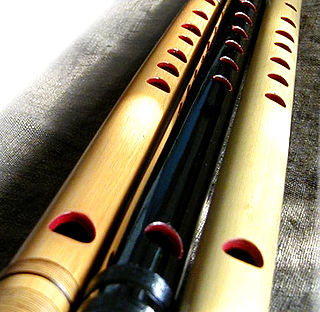Tune

"Tōryanse" (通りゃんせ) is the name of a traditional Japanese children's tune (warabe uta). It is a common choice for music played by traffic lights in Japan when it is safe to cross. Tōryanse can be heard in many forms of popular culture, such as at crosswalks in anime.
The words to the song are:
| Japanese: | Romaji: | Translation: |
通りゃんせ 通りゃんせ
| Tōryanse, tōryanse
| You may go in, you may enter |
天神さまの 細道じゃ
| Tenjin-sama no hosomichi ja
| This is the narrow pathway of the Tenjin shrine
|
御用のないもの 通しゃせぬ
| Goyō no nai mono tōshasenu
| Those without good reason shall not pass
|
行きはよいよい 帰りはこわい | Iki wa yoi yoi, kaeri wa kowai | Going in is easy, but returning is scary [1] |
こわいながらも
| Kowai nagara mo
| It's scary, but
|

![The Monument of Toryanse in Yamakaku Shrine Shan Jiao Tian Shen [Tong riyanse] .jpg](http://upload.wikimedia.org/wikipedia/commons/thumb/c/c7/%E5%B1%B1%E8%A7%92%E5%A4%A9%E7%A5%9E%E3%80%8C%E9%80%9A%E3%82%8A%E3%82%83%E3%82%93%E3%81%9B%E3%80%8D.jpg/220px-%E5%B1%B1%E8%A7%92%E5%A4%A9%E7%A5%9E%E3%80%8C%E9%80%9A%E3%82%8A%E3%82%83%E3%82%93%E3%81%9B%E3%80%8D.jpg)
There are many theories to the origin of the song, but all agree that it is a portrayal of an exchange between a civilian and a guard manning some sort of a checkpoint – at Kawagoe Castle according to one theory. In the old days when infant mortality was high, people celebrated when a child survived to reach the age of 7 (as well as 3 and 5; see Shichi-Go-San), and ordinary people were only allowed to visit the shrine within the castle compound for special occasions.
This particular warabe uta is sung as part of a traditional game where two children facing each other link their hands to form an arch 'checkpoint', and the remaining children walk through underneath in a line (and back round again in circles). The child who happens to be under the arch when the song finishes is then 'caught', not unlike the Anglophone game "London Bridge Is Falling Down".
The tune being played at Japanese pedestrian crossings is an analogy to this game, i.e., it is safe to cross until the music stops.

Shichi-Go-San is a traditional Japanese rite of passage and festival day for three and seven-year-old girls, and five-year-old and sometimes three-year-old boys. It is held annually on November 15 and celebrates the growth and well-being of young children. As it is not a national holiday, it is generally observed on the nearest weekend.

"Oranges and Lemons" is a traditional English nursery rhyme, folksong, and singing game which refers to the bells of several churches, all within or close to the City of London. It is listed in the Roud Folk Song Index as No 13190. The earliest known printed version appeared c. 1744.

Hana Ichi Monme (花一匁) is a traditional Japanese children's game. The game is similar to the game Red Rover in the Western world, and is often played in kindergartens and elementary schools.
Okinawan music is the music associated with the Okinawa Islands of southwestern Japan. In modern Japan, it may also refer to the musical traditions of Okinawa Prefecture, which covers the Miyako and Yaeyama Islands in addition to the Okinawa Islands. It has its roots in the larger musical traditions of the Southern Islands.
"Kagome Kagome" is a Japanese children's game and the song associated with it. One player is chosen as the Oni and sits blindfolded. The other children join hands and walk in circles around the Oni while chanting the song for the game. When the song stops, the Oni tries to name the person standing directly behind them.

The biwa is a Japanese short-necked wooden lute traditionally used in narrative storytelling. The biwa is a plucked string instrument that first gained popularity in China before spreading throughout East Asia, eventually reaching Japan sometime during the Nara period (710–794).

A singing game is an activity based on a particular verse or rhyme, usually associated with a set of actions and movements. As a collection, they have been studied by folklorists, ethnologists, and psychologists and are seen as important part of childhood culture. The same term is also used for a form of video game that involves singing.
Warabe uta (童歌) are traditional Japanese songs, similar to nursery rhymes. They are often sung as part of traditional children's games. They are described as a form of min'yo: traditional Japanese songs, usually sung without accompanying instruments.

Bobby Jarzombek is an American musician of Polish and German ancestry who is currently the drummer for country music legend George Strait. Bobby also has been a drummer for Sebastian Bach, and progressive metal band Fates Warning. Guitarist Ron Jarzombek is his younger brother.

"Sakura Sakura", also known as "Sakura", is a traditional Japanese folk song depicting spring, the season of cherry blossoms. It is often sung in international settings as a song representative of Japan.

The shinobue is a Japanese transverse flute or fue that has a high-pitched sound. It is found in hayashi and nagauta ensembles, and plays important roles in noh and kabuki theatre music. It is heard in Shinto music such as kagura-den and in traditional Japanese folk songs. There are three styles: uta (song), hayashi (festival), and doremi. The uta is tuned to a Japanese variant of the shi'er lü scale, while the temperament of the hayashi vary across regions. The doremi is tuned to the western scale; hence the name.

Shimpei Nakayama was a Japanese songwriter famous for his many children's songs and popular songs (ryūkōka) that have become deeply embedded in Japanese popular culture.
Kiyoshige Koyama, was a Japanese composer for orchestras, vocal, and traditional Japanese instrumentation. He was born in Nagano City, Nagano Prefecture. Although nationalistic he did not compose until his thirties, which was after the period of Imperial expansionism.
Music Wizard Group is a software development firm that develops and publishes software products to teach students to play various musical instruments through MIDI software and a Guitar Hero-like interface. Unlike Guitar Hero, it uses real instruments and teaches to read sheet music as well.
Shima-uta is a genre of songs originating from the Amami Islands, Kagoshima Prefecture of southwestern Japan. It became known nationwide in the 2000s with the success of young pop singers from Amami Ōshima such as Hajime Chitose and Atari Kōsuke.

LA VÍBORA DE LA MAR is a traditional singing game originating in Mexico. Participants hold hands creating the “snake” and they run around the playground. It is a popular children's game in Mexico and Latin America, and also in Spain where it is known as "pasemisí". This game has become a tradition at Mexican weddings. The bride and groom stand up high on chairs and are encircled and held by family members representing the family union and support towards them. Meanwhile, other participants will form the “snake” and dance and bump against them, trying to knock them off the chairs, representing all the obstacles and problems that may try to bring them down. Family and friends try to keep the couple standing on their chairs, symbolizing that they will keep the couple together and support them through adversity.

Fairy Dance: Kokia Meets Ireland is Kokia's seventh studio album, released in September 2008. It is the third of four albums released in 2008 to celebrate her 10th anniversary as a singer. One song from the album, "Song of Pocchong ," features on Kokia's 2009 greatest hits collection Coquillage: The Best Collection II.

Project 575 is a multimedia project created by Sega that utilizes Vocaloid voice synthesizers in order to create traditional 5-7-5 tanka and haiku poems. It consists of an iPhone app titled Uta Yomi 575, released on July 26, 2013, as well as a PlayStation Vita game titled Uta Kumi 575, released on January 23, 2014, and is described as a combination of a rhythm game and a word building game. A 4-episode comedy slice of life anime television series adaptation titled Go! Go! 575 aired between January 9 and January 30, 2014.
Masaru Kawasaki was a Japanese conductor and composer. He was known for writing original compositions specifically for concert band, as did Toshio Akiyama and Ichitaro Tsujii, but has also written many works for the flute.